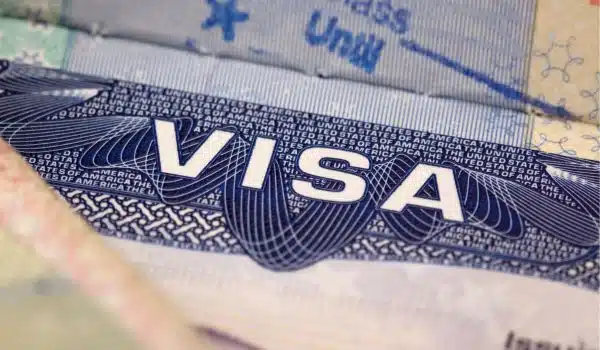In efforts to combat crime, the S visa emerges as a specialized category protecting individuals who stand by law enforcement agencies. In 1994, The Violent Crime Control and Law Enforcement Act created the S category. The S visa is given to aliens who assist US law enforcement to investigate and prosecute crimes and terrorist activities. The S visa is temporary in nature and does not grant the holder permission to reside in the U.S. permanently. However, an S visa holder may adjust his or her status to that of a permanent resident (green card holder) under a special provision under Section 245(j) of the Immigration and Nationality Act. If the information supplied by the S visa holder has “substantially contributed” to a successful investigation or prosecution of a crime, he or she may be eligible for adjustment of status. Similarly, if the S-visa’s information “substantially contributed” to the prevention of an act of terrorism, or to the apprehension of a person involved in terrorist activities, he or she may be eligible to adjust status. Unlike in other cases, S visa holders do not directly apply for adjustment of status, the agency the S visa holder helped has to submit the application on his or her behalf.
S visa serves as a second chance for those who would be inadmissible for any other type of visa, including those who were deported, with a criminal record, or with problems in their immigration status. The S visa gives grounds for the Secretary of Homeland Security to waive these reasons for inadmissibility. The S visa category comes bearing benefits such as a derivative benefit for the families of S visa holders, this includes spouses and qualifying family members.
There are two different types of S visas with different requirements:
S-5 Visa for Criminals Informants
A S-5 visa is specifically for those who can provide valuable information that leads to preventing, discovering, or convicting a criminal organization. This classification is awarded to foreign nationals by the Attorney general who has the main authority to determine eligibility. An S-5 visa, the informant or witness’s role must be pivotal to the success of the criminal investigation and must be willing to provide information to authorities.
To be eligible for S-5 Visa, a foreign national must meet the following requirements:
- Witness or informant must possess truthful information about an important crime or criminal organization (or pending commission of a crime)
- An informant must be willing to share the information he knows with law enforcement agencies as well as become a witness in court.
- The presence of the informant must be of high importance for the success of the investigation and prosecution of that crime.
The number of witnesses or informants who receive the S-5 visa in a fiscal year cannot exceed 200.
S-6 Visa for Terrorists Informants
For this type of S visa, the Attorney general and Secretary of State will determine whether the individual is eligible for S-6. With the S-6 visa typically a large factor that will be weighed upon reviewing eligibility is whether the individual poses a danger to the United States.
To be eligible for S-6 Visa the following requirements must be met:
- The information must have truthful and reliable information about a terrorist organization or activities that could naturalize harm.
- An informant must be willing to share the information with law enforcement agencies AND be willing to become a witness in court.
- The informant is or will be in danger if they give out this information.
The number of informants admitted under this classification may not exceed 50 in any fiscal year.
S-7 Visa for Accompanying Family Members
The S-7 nonimmigrant visa is for families of S-5 and S-6 visa holders. This includes spouses, married or unmarried children, and parents.
A foreign national is granted an S visa for a three-year period. The U.S. government has determined that this is sufficient time for the witness to provide any valuable knowledge of terrorist or criminal activity. After the three-year period, the Foreign national does not have an option for extending his/her S visa. However, he or she has the option of filing for a green card, as mentioned above. While the S visa serves as a powerful tool and can pave the way for a fresh start there are restrictions that holders of S visa must comply with, such as:
- Informing the attorney general every three months about their whereabouts and activities.
- Not being convicted of a crime that is punishable by one or more years in prison.
- Complying with conditions that the attorney general imposed during their stay in the United State
For more information regarding restrictions that S visa holders must comply with, ILBSG highly recommends seeking legal advice. ILSBG’s legal team of experts is always prepared to assist with any questions regarding S visas and offer consultation for its clients. For witnesses and informants who are looking for a fresh start, the S visa is a beacon of hope and ILBG’s expert legal team is your guiding star. ILBSG’s legal professionals can assist by ensuring the right supporting evidence is submitted.
If you have any questions or concerns about an S visa or any other immigration-related issue, please contact us. We are closely monitoring all immigration-related issues. Our team ensures to guide you through all immigration complications and is with you every step of the way.

